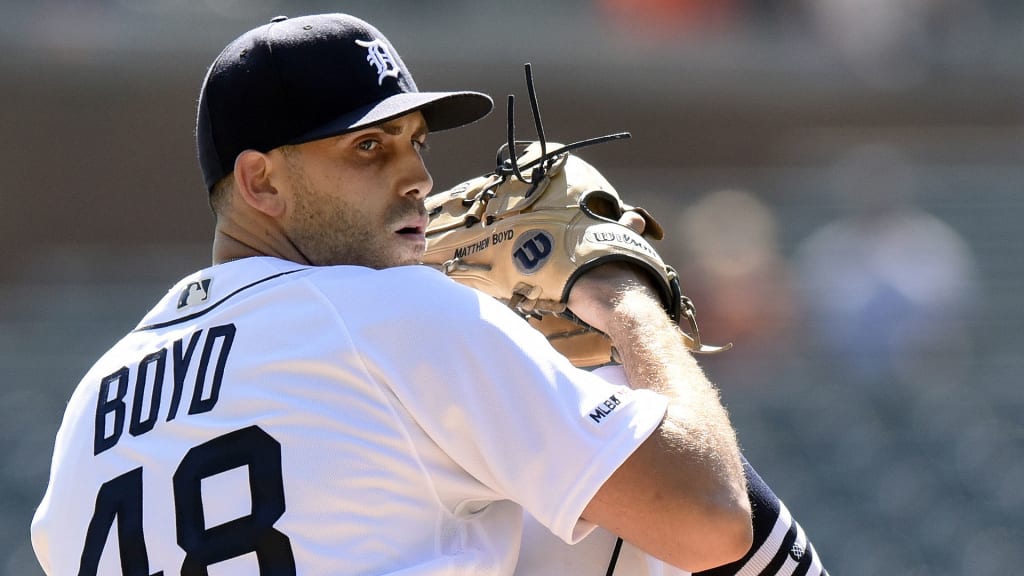
DETROIT -- Matthew Boyd has made it clear he wants to be a Tiger for the long term. The Tigers have shown no inclination lately of trading him in the short term. But can the two sides find enough common ground to put it in writing with a long-term contract?
This week’s arbitration dealings could reveal a lot about that.
A year after the Tigers went to an arbitration hearing for the first time since 2001, they appear unlikely to go back this time around. They settled on a contract with Michael Fulmer on Monday for the same $2.8 million salary he received last year, and their remaining potential cases -- Boyd, Buck Farmer, JaCoby Jones and Daniel Norris -- remain fairly simple. They could still end up exchanging salary figures with players at Friday’s 1 p.m. ET deadline, but ultimately, a quartet of deals appears likely.
The bigger question for the Tigers and Boyd is whether they can agree on a contract for beyond 2020 -- and for how long. The result could say plenty about where the Tigers stand in their rebuilding process, and where they’re headed in the next few years.
The Tigers have rarely signed multiyear contracts with players in their arbitration years. Miguel Cabrera and Justin Verlander are obvious exceptions. J.D. Martinez signed a two-year contract to cover his final two seasons before free agency. Ryan Raburn had a similar two-year deal in 2011, while Fernando Rodney did the same a dozen years ago under then-general manager Dave Dombrowski.
More fitting comparisons for Boyd might be two examples from the 2000s: Nate Robertson signed a three-year contract after the '07 season, with two years before free agency. Jeremy Bonderman signed a four-year extension after the '06 season, with two years to go before free agency. Both deals were efforts to keep together a Tigers rotation that helped propel Detroit to the World Series in '06.
Boyd and the Tigers are obviously in a different situation. He has three remaining years of arbitration, including this one. He qualified for arbitration last year as a Super Two with just under three years of service time, eventually signing a one-year, $2.6 million contract. The Tigers are still rebuilding, with their crop of highly rated pitching prospects expected to begin arriving in Detroit late this season.
Still, there are two advantages to signing Boyd long-term, even if just to cover his arbitration years. First, he could be a valuable veteran presence in an otherwise young rotation, with a positive attitude and a high work ethic. Second, a multiyear deal offers cost certainty, whether for the Tigers or for any team that might trade for him.
Even if the two sides settle on a one-year contract this week to avoid arbitration in the short term, it doesn’t necessarily rule out a multiyear contract. The Tigers’ first long-term deal with Verlander, a five-year contract worth $80 million, came together just before Spring Training in 2010.
A potential factor in any negotiation with Boyd is agent Scott Boras, who has traditionally taken a year-to-year approach to arbitration and has preferred clients playing out their arbitration seasons and testing the open market before considering an extension.


